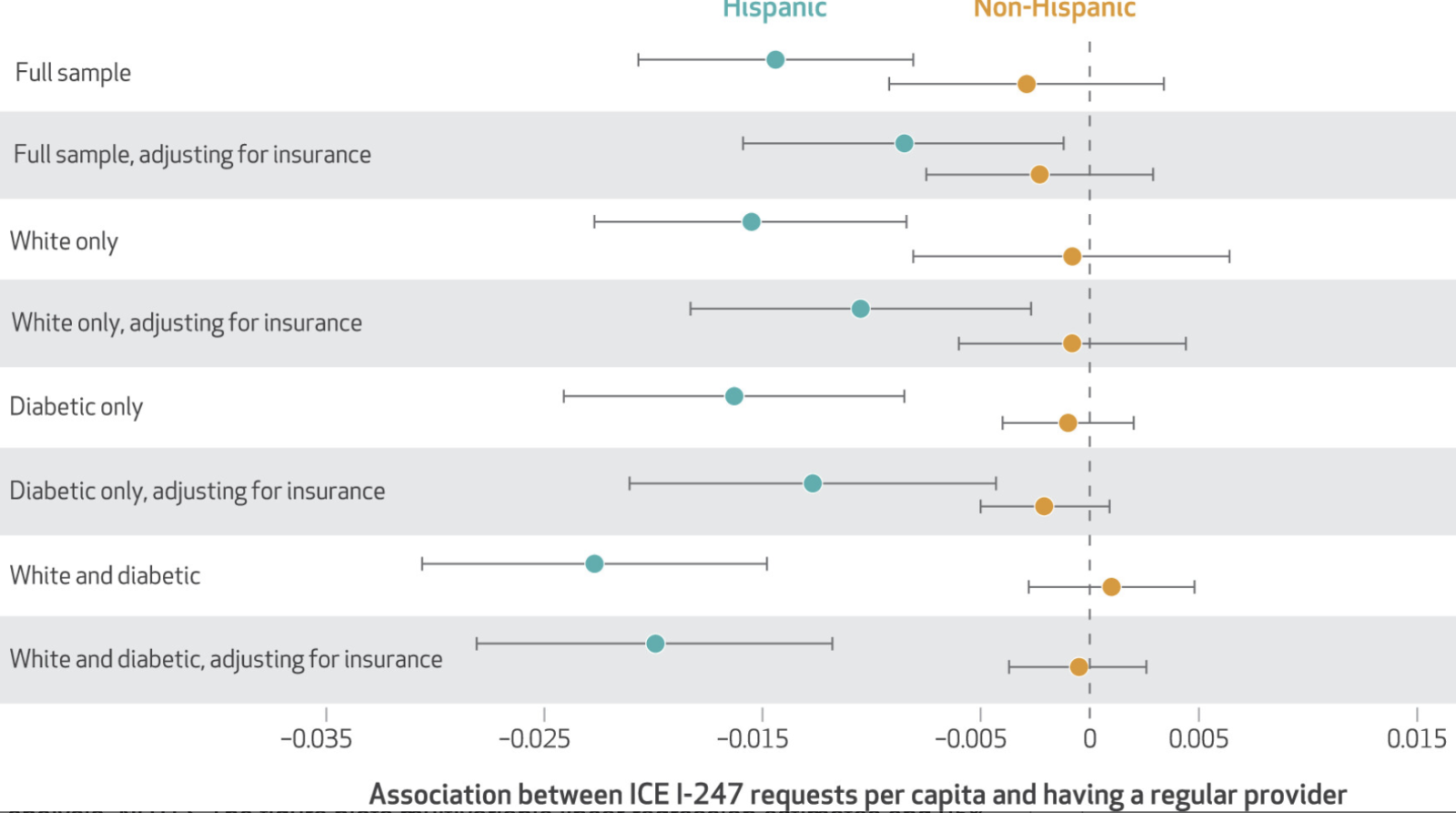Research Topics
Immigration Policy, Opportunity, and Health
For years, immigration has been a frequent subject of discussion among policymakers at the national level. Many Americans wonder about the economic impact of immigration, both for immigrants and for natives. In June of 2012, President Obama established the Deferred Action for Childhood Arrivals (DACA) Program via Executive Order. Given undocumented immigrants satisfy several criteria, DACA provides beneficiaries freedom from deportation and access to work permits. There is little doubt that DACA has expanded economic opportunity undocumented immigrants.1, 2 We leveraged the introduction of DACA as a natural experiment to assess how economic opportunity might affect health.
In our study “Health Consequences of the U.S. Deferred Action for Childhood Arrivals (DACA) Program: A Quasi-Experimental Study” (2017), we used publicly available survey data from 2008-2015 to compare changes in physical and mental health before and after DACA was implemented, using individuals who just missed making DACA eligibility criteria as controls for those who did.
Using a “differences-in-differences” approach, we found that exposure to the DACA program led to meaningful reductions in symptoms of psychological distress among DACA-eligible individuals, though not physical health.
Using a “differences-in-differences” approach, we found that exposure to the DACA program led to meaningful reductions in symptoms of psychological distress among DACA-eligible individuals, though not physical health. We summarized this, and other studies, in our editorial “Dreams Deferred-The Public Health Consequences of Rescinding DACA” (2017).
Since our research was conducted, President Trump terminated the DACA program. A June 2020 U.S. Supreme Court decision overturned this action. Recent research by other groups has shown that the uncertainty during this period around DACA’s fate has undone its positive effects on health, suggesting that restricting economic opportunities, too, may have deleterious effects on health.
A 2021 study by members of our team and researchers at Yale University, which found that U.S. Immigration and Customs Enforcement (ICE) activity led to reductions in health care seeking among Hispanic adults living in the United States, further underscores the finding that aggressive immigration enforcement can reduce health in immigrant populations. Strikingly, this study found that immigration enforcement led to reductions in health care utilization even among Hispanic adults with diabetes, for whom regular access to care is very important to ensure good health.
Changes in Likelihood of Receiving an Annual Checkup due to Increases in Immigration Enforcement, U.S. Adults, 2011-2016

1 Pope NG. The effects of DACAmentation: the impact of Deferred Action of Childhood Arrivals on unauthorized immigrants. J Public Econ 2016; 143: 98-114.
2 Amuedo-Dorantes C, Antman F. Can authorization reduce poverty among undocumented immigrants? Evidence from the Deferred Action for Childhood Arrivals Program. Econ Lett 2016; 147: 1-4.

